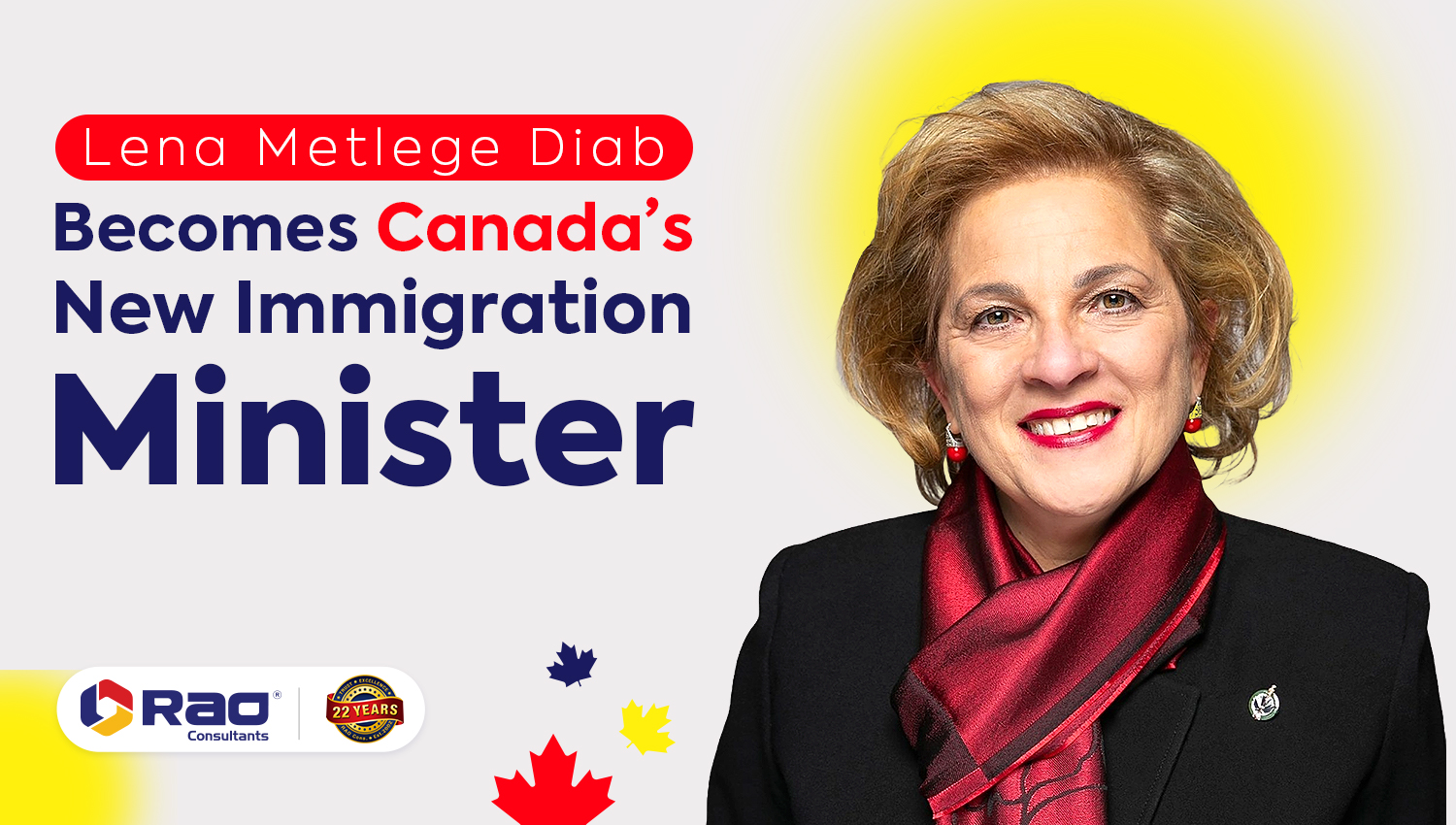News


Rao Consultants
December 16, 2024
Canada Announces 4 New Immigration Pathways for Permanent Residency in 2025
![]()
As Canada gears up for 2025, immigrants looking to settle in the country can breathe a sigh of relief. The Canadian immigration system, which faced a rollercoaster of ups and downs in 2024, is set to introduce four new immigration pathways aimed at offering permanent residency. These new programs are designed to address labor shortages, attract skilled workers, and ensure long-term growth in rural and minority communities.
|
Program |
Highlight |
Inspired from the Previous Program |
|
Enhanced Caregiver Pilot Programs |
Provides permanent residency on arrival for home care workers, such as child care providers and home support workers. |
Builds on the success of the Home Child Care Provider Pilot and the Home Support Worker Pilot, which end in 2024. |
|
Rural Community Immigration Pilot |
Aims to fill labor shortages in rural communities by attracting immigrants willing to stay long-term. |
Follows the success of the Rural and Northern Immigration Pilot (RNIP). |
|
Francophone Community Immigration Pilot |
Focuses on attracting skilled workers to rural and Francophone minority communities outside Quebec. |
Builds on Canada’s ongoing efforts to support and grow Francophone communities. |
|
Manitoba’s West Central Immigration Initiative Pilot |
Focuses on addressing labor shortages in Manitoba’s rural west-central region, requiring 200-300 workers over the next three years. |
Extends the success of regional immigration initiatives like Winkler-Stanley and Morden. |
1. Enhanced Caregiver Pilot Programs
One of the most notable changes is the introduction of the Enhanced Caregiver Pilot Program. This initiative aims to provide permanent residency (PR) to home care workers, including child care providers and home support workers, upon arrival in Canada. This pilot program follows the success of previous caregiver programs, which have seen nearly 5,700 caregivers and their families become permanent residents by April 30, 2024 (Dhawan, 2024).
Marc Miller, Canada’s Minister of Immigration, Refugees, and Citizenship, confirmed that caregivers will now have immediate access to permanent resident status as soon as they arrive in the country. He emphasized that caregivers play a vital role in supporting Canadian families and that the new program will reflect their invaluable contributions.
The new program builds on the success of two pilot programs—the Home Child Care Provider Pilot and the Home Support Worker Pilot—both of which are set to conclude in 2024. Under the 2024–2026 Immigration Levels Plan, Canada is set to admit over 15,000 caregivers as permanent residents (Dhawan, 2024).
Eligibility criteria for the Enhanced Caregiver Pilot Program include:
- A minimum language proficiency of level 4 on the Canadian Language Benchmarks (CLB) tests
- Relevant work experience
- A full-time home care job offer
Caregivers under this program will be eligible for jobs that involve temporary or part-time care for semi-independent individuals or those recovering from illness or injury.
2. Rural Community Immigration Pilot
The much-anticipated Rural Community Immigration Pilot is set to launch in 2025, continuing the success of the Rural and Northern Immigration Pilot (RNIP). The new particular program is basically launched to fill the gap of labor shortages and attract those who can spend a long term in rural areas of Canada.
As of December 31, 2023, the RNIP helped nearly 4,595 newcomers gain permanent residence, filling critical roles in sectors such as healthcare, retail, food services, and manufacturing (Times, 2024). Thus, this new pilot will be inspired on this success and is expected to provide even better opportunities for rural communities to thrive.
The precondition details to apply for this new pilot will be released at the time of early launch of the program focusing on the crisis of labor shortages in rural areas.
3. Francophone Community Immigration Pilot
Canada continues its dedication towards the growth of its Francophone minority communities, and the new Francophone Community Immigration Pilot program to be soon coming in 2025 is a lead toward further enhancing the country’s economic development. This new pilot will seek to encourage and secure skilled foreign workers in rural and Francophone minority communities, outside of Quebec.
The initiative aligns with Canada’s broader perspective of supporting Francophone communities, for their betterment growth and economic stability. The standard requirements to fit into this program is yet to be announced. But surely the applicants can expect that there are high chances of individuals getting selected under this program with the potential to contribute to the betterment of these communities.
4. Manitoba’s West Central Immigration Initiative Pilot
Announced in late 2024, the Manitoba West Central Immigration Initiative will continue over the next three years to address labor market shortages in the rural west-central regions of the province. The respective initiative has extended support from the Gambler First Nation and several other rural municipalities to fulfil labor demands.
The program is framed around Manitoba’s present regional immigration initiatives, which have been successful in areas like Morden, Winkler-Stanley, and the Parkland region. According to press releases, the province anticipates needing around 200-300 workers over the next three years.
Eligibility details for this program will be released in due course, but it is expected to offer pathways to permanent residency for those willing to settle in these underserved regions.
These respective and much awaited new immigration pathways in 2025 comprised of 4 pilot programs seem to provide major opportunities for caregivers and skilled workers to gain permanent residency in Canada, helping to cope up critical labor crisis and foster economic growth.
You May Also Like

Canada’s Proposed Citizenship Bill: A Landmark Opportunity for the Global Indian Diaspora
Canada is once again reaffirming its image as one of the world’s most inclusive and forward-thinking nations with a historic new bill—Bill C-3, introduced on June 5, 2025—that seeks to restore and expand citizenship rights, especially for those known as the “Lost Canadians.” This reform, if passed, is expected to have a far-reaching impact, particularly […]
Read More
Lena Metlege Diab Becomes Canada’s New Immigration Minister
![]()
Lena Metlege Diab has been appointed as Canada’s new Minister of Immigration, Refugees and Citizenship. The announcement was made on May 13, 2025, as part of a cabinet change by Prime Minister Mark Carney. Diab takes over from Rachel Bendayan, who briefly held the role after Marc Miller. This new position puts Diab in charge […]
Read More
Anita Anand Becomes Canada’s First Hindu Woman Foreign Minister: A Big Step for India-Canada Relations
![]()
Anita Anand has made history by becoming Canada’s new Minister of Foreign Affairs. She is the first Hindu woman to take this important role, showing how Canada is becoming more diverse and inclusive. Her appointment could also help improve the relationship between India and Canada. Her Journey in Politics Before entering politics, Anita Anand was […]
Read More